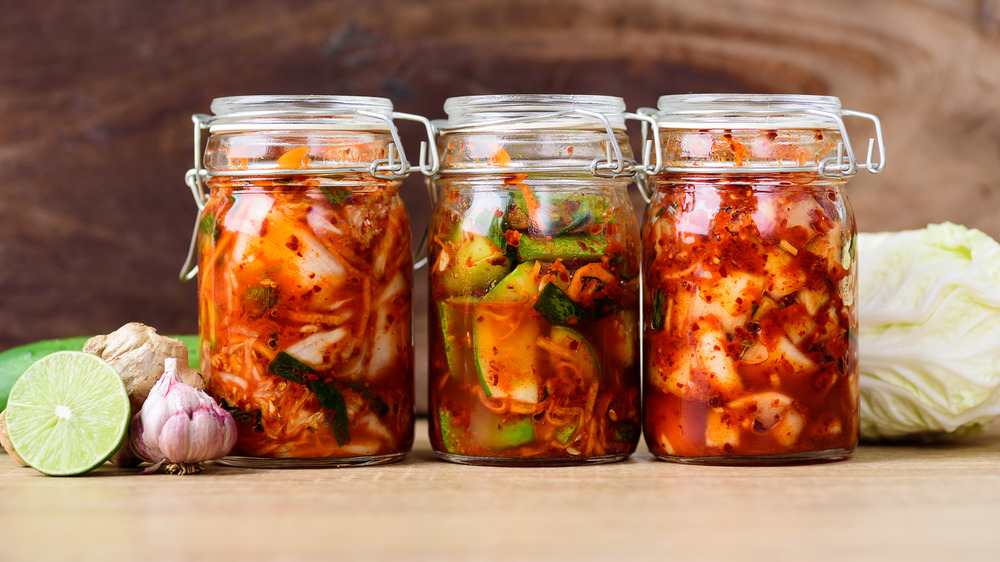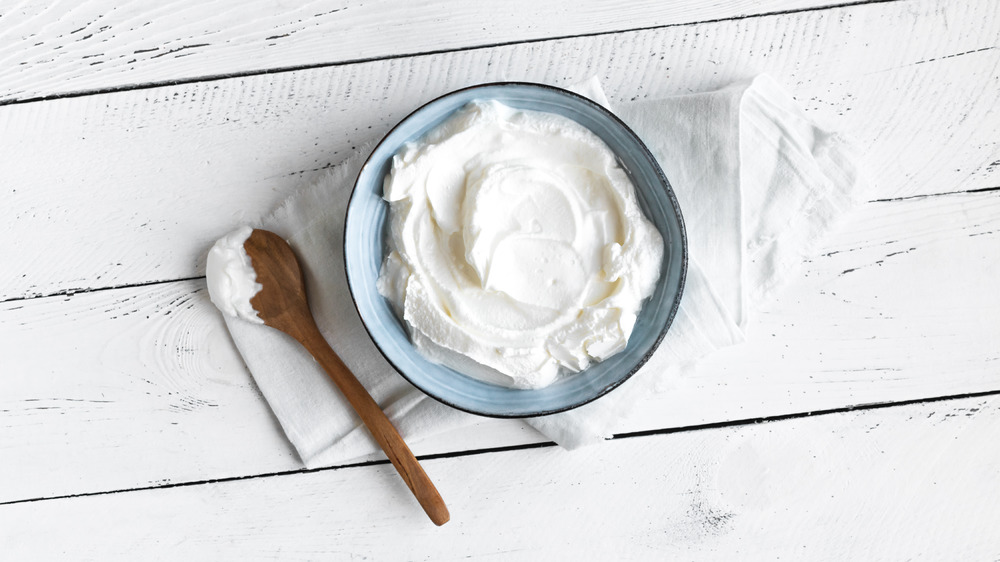Why You Should Be Eating Fermented Foods Daily
Improved digestion, a boost in immune function, reduced inflammation, weight loss, the list goes on! If this sounds like the side effects of some fancy medication, try again. Bacteria called probiotics, which are present in fermented foods, are actually the superstars partly responsible for these results, according to BBC Good Food. Fermentation occurs when yeast, bacteria, and other organisms alter food (or drinks) through their own metabolic activity and growth (via BBC). Starches and sugars are broken down, facilitating digestion and preserving food over time, Healthline reports.
You might already be eating common fermented foods, including yogurt and some cheeses, which are both the result of the transformation of lactose (via BBC). Other examples to start looking out for are sauerkraut, kimchi, kombucha, miso, sourdough bread, and kefir (via BBC Good Food).
While you may be tempted to stock up on fermented foods, it is important to start slowly! Since the bacteria interact in unique ways with your gut, you may experience some bloating, gas, and discomfort at first (via BBC). Once your body gets used to the presence of novel bacteria, these symptoms should subside. Even better, a study published in the World Journal of Gastroenterology found that probiotics reduced symptoms and pain associated with irritable bowel syndrome. More investigation is necessary to determine which probiotics are best suited for certain medical issues (via PubMed). Nonetheless, once you start integrating these delicious foods and adding some tang to simple dishes, your gut will thank you!
What are some benefits of probiotics?
Though fermenting food is an ancient practice that originated as a method of preservation, Science Direct explains that the activity of each type of bacteria and the effect they have once ingested are still not fully understood. Considering each kind of bacteria has its own functions, it is useful to eat a diet rich in a range of fermented foods. Although you can buy probiotic supplements, it is better to ingest fermented foods since it is hard to know how the pills were stored and whether the bacteria are still alive (via BBC Good Food).
According to Dr. Ludwig, a professor at Harvard's School of Public Health, who spoke with Harvard Health Publishing, probiotics prime your gut to respond to different bacteria, improving its ability to fight against the unwanted kind. BBC Good Food suggests that the average modern-day diet feeds bad bacteria, resulting in a range of negative health effects. Dr. Ludwig explains that rigid hygiene measures make it difficult for our bodies to come into contact with good bacteria that strengthen our system (via Harvard Health Publishing).
Furthermore, processes like pasteurization kill probiotics in foods like yogurt, eliminating the benefits. By incorporating fermented foods high in probiotics to your diet, the activity of the good bacteria in your body will increase, leading to health benefits (BBC Good Food).

